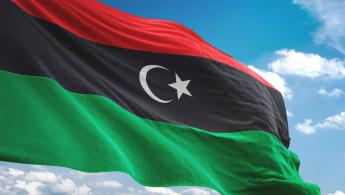Definition of Islamic banking Terms
First: The Islamic Bank
It is a bank whose foundation contract and statutes include an obligation to practice Islamic banking activities, whether in the field of accepting depositors' funds or in the fields of sales, finance and investment, or in the provision of other banking services, in order to achieve economic and social added value.
Second: Islamic Banking
It is the provision of banking services, and the practice of financing and investment in accordance with formulas not inconsistent with the provisions of Islamic law (Article 100 bis 1).
Third: The Central Authority for Legitimacy Censorship
The Central Bank of Libya shall have a central authority for Legitimacy Censorship, with a minimum of five members of the Sharia and jurisprudence specialists, in addition to three other members of the specialists in the fields of law, economy and banking. The decisions of the Central Authority for Legitimacy Censorship shall be binding on Legitimacy Censorship Boards, banks and institutions operating in the field of Islamic banking and Islamic finance (Article 100 bis 6).
Fourth: The Legitimacy Censorship Board
It is the body appointed by the general assembly of the bank, the number of its members shall not be less than three specialists in the sciences of Sharia, law and Islamic banks, and the experts in the jurisprudence of transactions, issued by appointment and determination of their remuneration decision of the General Assembly of the bank, for a period of three years and may be reappointed, The Legitimacy Censorship Board shall:
- The members of the Commission shall be appointed from among those registered in the register of observers at the Central Bank of Libya.
- Shall apply to the appointment of members of the Commission and their adoption of the provision provided for in this Law from the article (69),and none of them should be employed by another local bank, or a member of its board of directors, Or in the Legitimacy Censorship Board. In cases The Central Bank of Libya may deems fit, combine the membership of more than one Sharia ‘a Supervisory Board.
- The Authority shall assume functions and competencies stipulated in the Bylaws of the Bank, including:
- Monitor activities of the bank and its activities to ensure that they do not violate the provisions of Islamic law.
- Reviewing the bank's balance sheets and final accounts, distributing the profits and verifying its performance, in accordance with the criteria adopted by the Central Authority for Sharia Supervision.
- Adopting the necessary forms of contracts for the activities and business of the Islamic Bank.
- Any other tasks assigned by the Central Bank of Libya, upon the proposal of the Central Authority for Legal Supervision (Article 100 bis 7).
Fifth: The Department of Auditing and Forensic Auditing
It is the administration affiliated to the bank's management, which is competent to review and legalize the daily expenses and international standards, in the accounts of Islamic auditing (Article 100 bis 1).
Sixth: The branches of Islamic banking
They are banking branches adopted by a conventional bank to practice Islamic banking activities, taking into account the fact that these branches have a financial center independent of the parent bank and that are affiliated with a special management of Islamic banking (Article 100 bis 1).
Seventh: Islamic financing and investment formulas
Murabaha.. Musharaka ..Mudharaba ..istisna'a..elsulm ..ijara..
1. Murabaha:
it is one of the products of the Islamic banks and traditional banks of modern origin and it was adopted as a substitute for the interest system and accompanied by the slogan of the advancement of society and the establishment of investment and development projects and are compatible with all banking transactions such as letters of guarantee and documentary credits and others. It is one of the types of sales of the secretariat, which is based on the disclosure of the seller about the price on which the commodity was built, which is the sale of capital and the increase of profit known and fixed, a project contract has been dealing with it since ancient times.
Murabaha types
- The Simple Murabaha is limited relationship between the bank and the customer.
- The concentrated Murabahais between three parties’ bank, customer and merchant.
Murabaha Banking Forms:
- It is that the customer resorts to a person or company to the bank to ask for a mechanism to buy a commodity. Determines its specifications, price and source. And then prepared by buying it Murabaha at the cost of any increase in the profit is known and fixed on the capital of the bank agree.
- There are other pictures of Murabaha by some banks. So that the bank studies the economic market to know what goods need, which may be directed to the desire to buy certain goods, the bank buys those desired goods in the market and those who want to buy them, but without a previous promise to buy and sell Murabaha on the capital of them.
How Murabaha Banking is executed?
It is made through the purchase of a commodity or a property by a bank with a purchase contract specified by the customer in a "purchase" application form. The customer promises to buy it through a purchase order form and is not obliged to do so. The bank pays the price in cash becoming the owner; then he sells that commodity or machine or property to the customer at an urgent price payment in a lump sum or through a differed payment made by the customer on specific premiums through the murabaha contract for those arranging purchase orders.
It is called Compound Murabaha as it involves two phases:
- The promise phase which is the former and the contract phase which is the subsequent.
- It was also called Murabaha for the purchase order given that it involves a request from the customer to purchase the commodity; thus, as such it becomes a purchase order.
2. Musharaka:
It’s is a contract shared between two or more, provided that the asset in other words the capital or the profit are shared between them.
Musharaka Parties:
- First Side: The Bank
The bank participates in providing the necessary financing for the project and does not receive any value interest on the financing; but rather the customer participates in the net output of the project, and this is done according to the fair rates as agreed upon in the partnership contract.
- Second Side: The Customer
The customer participates in the provision of a given share to finance the project from the total value of the project. Most often, the customer would be responsible for managing the project and supervising its implementation provided he has the needed skills and the necessary expertise to succeed.
Musharaka Forms:
- Fixed sharing
- Decreasing participation
Note (Participation in import transactions is related to the Central Bank of Libya)
Mudharaba:
- Mudharaba: It is a kind of partnership, in which the capital is from a person, the effort from another person ; for the first is said to be the owner of the capital and for the second is said to be a speculator.
Types of Mudharaba:
Absolute Mudharaba: It is a non-time-limited, non-space-limited, non-type of trade-limited nor have they sold, or the buyer been appointed. For instance, the buyer can declare that "This money has been given to you as a speculation provided that the profit would be shared between us on the basis that". While this type of speculation is halal or permissible, banks do not rely on it on the time being given the difficulty of investing these funds according to this manner and as way to preserve its cash.
Restricted Mudharaba: It is limited to time, place or type of goods or goods, or is not sold or purchased only from a certain person, or under any conditions that the capital owner sees restricting the speculator as long as it is in the frame of Sharee'ah. Restricted speculation is dominant in Islamic banks because they are more disciplined than absolute speculation and allows banks to continue to invest their funds in the right way.
4. Istisna’a
It is one of the selling contracts through which one can immediately buy for the purpose of working on the construction or manufacture of a commodity not ready yet, and the seller is committed to providing it ready with materials of his own and with certain criteria . The bank would satisfy the customer's needs and provide that commodity after manufacturing it himself or manufacturing it by others according to the criteria that the customer specified.
The banking aspects of Istisna'a:
- The Bank shall not be required to do the work itself, enabling it to make contracts of Istisna'a parallel to those that the customer makes as a manufacturer
- Istisna'a is suitable for Islamic banks because it is a legitimate and a funding contract. It is a funding contract provided by the bank in the form of a commercial credit splitting the price into premiums upon the manufacturer and paying the price to the manufacturer in a parallel contract of Istisna'a.
- Istisna'a can be used to fund the operations of large value-added industries or commodities and finance the construction of buildings, which has already started in some Islamic banks.
- The legitimacy of the profit obtained by the bank in the Istisna'a contract for the provision of money in the form of Cash purchase and a forward contract (for selling) and to maintain the promise manufacture of the model and to endure the risk of non-compliance.
5. Salam
The sale of a deferred interest is a financial transaction under which the payment of the price is accelerated by the buyer " The Bank" and submit it to the seller " the recipient", who, in turn, would be committed to deliver certain goods with specific characteristics in a predetermined time ; thus the seller " the recipient" would cover his financial needs, whether personal or productive; knowing that the buyer also takes advantage of the cheap price that has been sold within the ladder so he would assure risks of prices' volatility.
6. Ijaaraa
It is about a contract that is entered between two sides; the first is called the lessor (the owner of the original) and the second is the lessee (the user of the original), where the first grants the second the right to use the original during a certain period of time and the second which is the lessee would pay fixed amounts on agreed dates.
It is divided into Operating Ijaaraa and Finally owned Ijaaraa.
7. Al Wakala Bil Istithmar
It is a written authorization that is given to “Wakil” to develop money and invest it for a fee.

















